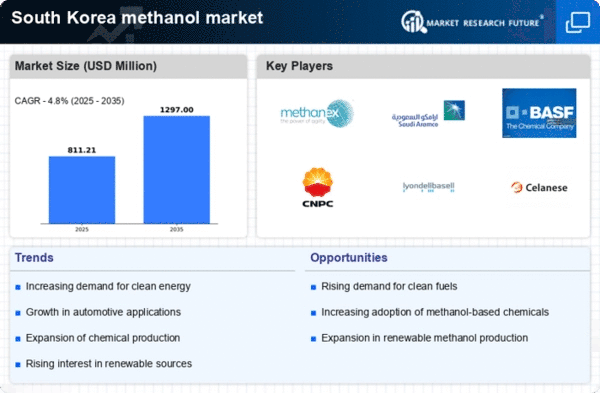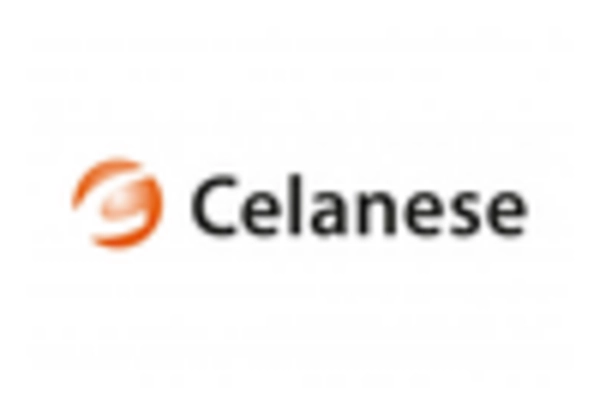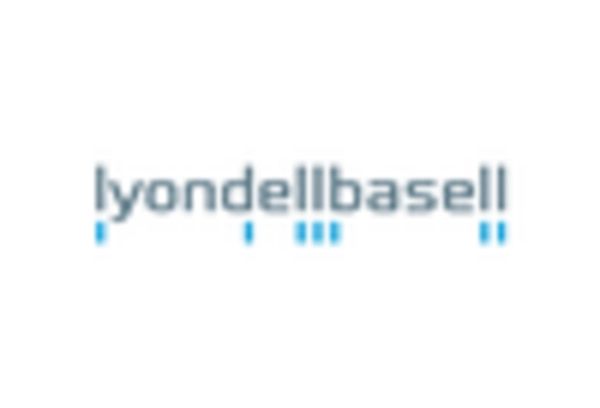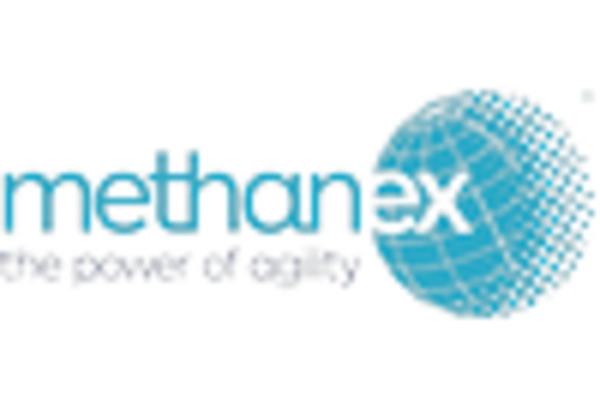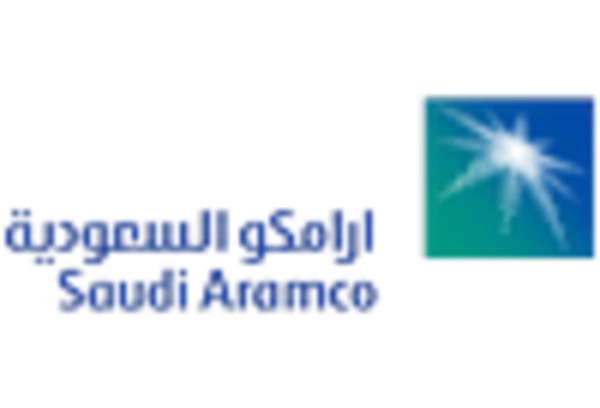The methanol market in South Korea is characterized by a competitive landscape that is increasingly shaped by innovation, sustainability, and strategic partnerships. Key players such as Methanex Corporation (CA), Saudi Methanol Company (SA), and BASF SE (DE) are actively pursuing strategies that enhance their market positioning. Methanex Corporation (CA) focuses on expanding its production capacity and enhancing its supply chain efficiency, which appears to be a response to the growing demand for methanol in various applications, including fuel and chemical production. Saudi Methanol Company (SA) emphasizes its commitment to sustainability, investing in technologies that reduce carbon emissions, thereby aligning with global environmental standards. Meanwhile, BASF SE (DE) is leveraging digital transformation initiatives to optimize its operations, which may provide a competitive edge in terms of cost efficiency and responsiveness to market changes.The business tactics employed by these companies reflect a concerted effort to localize manufacturing and optimize supply chains. The market structure is moderately fragmented, with several players vying for market share, yet the influence of major companies is substantial. This collective presence of key players fosters a competitive environment where innovation and operational excellence are paramount. The strategic moves of these companies not only enhance their individual market positions but also contribute to a dynamic competitive landscape that is responsive to both local and global market demands.
In October Methanex Corporation (CA) announced the launch of a new production facility in South Korea, aimed at increasing its methanol output by 15%. This strategic move is likely to bolster its market share and meet the rising demand for methanol in the region. The facility is expected to utilize advanced technologies that enhance production efficiency while minimizing environmental impact, aligning with the company's sustainability goals. This expansion could potentially position Methanex as a leader in the local market, enhancing its competitive advantage.
In September Saudi Methanol Company (SA) entered into a partnership with a local renewable energy provider to develop a methanol production facility powered by renewable sources. This initiative not only underscores the company's commitment to sustainability but also reflects a broader trend in the industry towards greener production methods. By integrating renewable energy into its operations, Saudi Methanol Company may significantly reduce its carbon footprint, appealing to environmentally conscious consumers and regulatory bodies alike.
In August BASF SE (DE) launched a digital platform aimed at streamlining its supply chain processes in the methanol sector. This platform is designed to enhance transparency and efficiency, allowing for real-time tracking of production and distribution. The strategic importance of this initiative lies in its potential to reduce operational costs and improve customer satisfaction through timely deliveries. As digitalization becomes increasingly critical in the chemical industry, BASF's proactive approach may set a benchmark for competitors.
As of November the competitive trends in the methanol market are heavily influenced by digitalization, sustainability, and the integration of advanced technologies such as AI. Strategic alliances are becoming more prevalent, as companies recognize the value of collaboration in achieving shared sustainability goals and enhancing operational efficiencies. The competitive differentiation is likely to evolve from traditional price-based competition to a focus on innovation, technological advancements, and supply chain reliability. This shift may redefine the competitive landscape, compelling companies to invest in R&D and sustainable practices to maintain their market positions.


